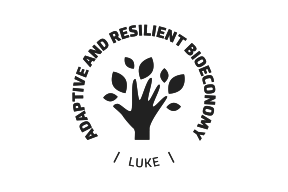Historic Initiative to Combat Non-Communicable Diseases
This week, a transformative initiative aimed at preventing non-communicable diseases (NCDs) takes its first step as the Joint Action on cancer and other non-communicable disease prevention project (JA PreventNCD) is launched in an Oslo meeting. The project is co-funded by the European Union with a total budget of 95.5 million EUR, representing 20% of the EU's total health budget. This groundbreaking project brings together 25 nations in a collaborative effort to address the growing burden of NCDs across borders. Participating institutes include the Finnish Institute of Health and Welfare, Cancer Foundation Finland, UKK Institute, Finnish Lung Health Association and Natural Resources Institute Finland (Luke).
NCDs, including cancer, type 2 diabetes, cardiovascular disease, and respiratory diseases pose significant challenges to public health, with over 75% of individuals facing the risk of these diseases. The risk factors, such as unhealthy diet, smoking, alcohol consumption, and physical inactivity, are well-known, yet the societal and economic costs continue to escalate. In the EU alone, NCDs account for a staggering 115 billion EUR annually in healthcare expenditures. This, along with all the human suffering experienced by those affected, underscores the urgent need for coordinated action.
A strong symbol of change
Led by Norway and supported by more than 100 partners, the Joint Action Prevent NCD project aims to tackle NCDs and their risk factors at both the individual and societal levels. Linda Granlund, head of coordination, and division director at the Norwegian Directorate of Health emphasizes the significance of this endeavour.
"Cancer and other NCDs constitute a large proportion of the total burden of disease in Europe. NCDs can be prevented, and sadly we have not managed to tackle the challenges in an effective and coordinated way up until now. This project represents a paradigm shift, with 20% of health budgets dedicated to prevention—a symbol of Europe's evolving approach to health."
Addressing the social gradient in NCD risk and exposure, Professor Knut-Inge Klepp, Scientific coordinator of the project at the Norwegian Institute of Public Health, stresses the importance of equitable policies.
"We should not tolerate certain groups facing more illness and early death than other. Policies addressing health determinants such as education and socioeconomic status are essential for creating equal opportunities for good health."
Luke’s task in the project is to assess the role played by the Common Agricultural Policy (CAP) of the EU and national policies affecting the food supply chain in connection with nutrition-related public health matters, and the extent to which the policies has influenced current dietary patterns.
“There is continuing pressure to include health dimension in the EU food and agricultural policies. This project provides an opportunity to examine more closely the links between food production and human health.” says Jyrki Niemi, Research Professor at Luke.


